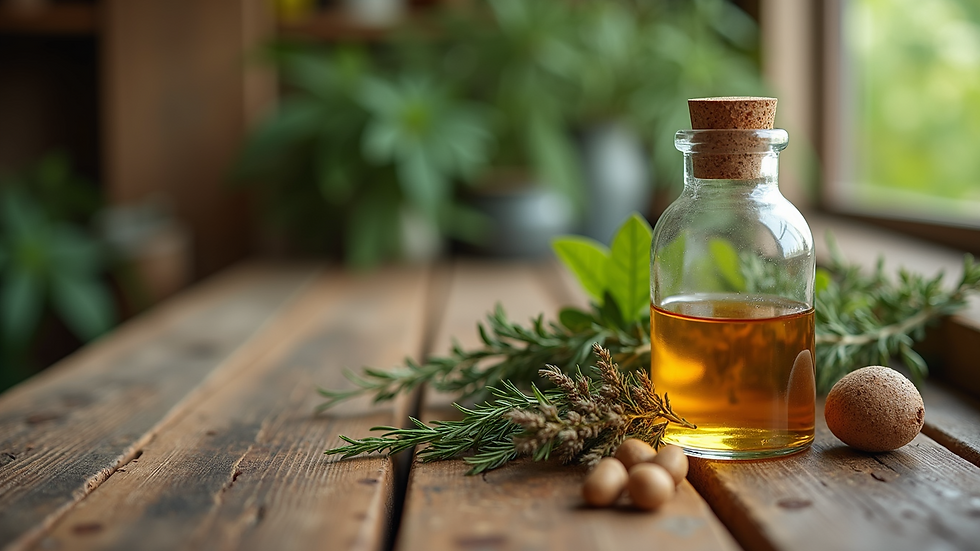How Sustainable Farming Benefits Agriculture
- Dash Organics
- Oct 7, 2025
- 4 min read
When I first started exploring ways to live more healthfully, I quickly realized that what we eat and how it’s grown plays a huge role in our well-being. Sustainable farming practices have become a beacon of hope for those of us who want to enjoy fresh, natural foods while caring for the planet. These methods not only protect the environment but also improve the quality of the crops we rely on every day.
Sustainable farming is more than just a trend. It’s a thoughtful approach that balances the needs of the earth, farmers, and consumers. By embracing these practices, we can support healthier soil, cleaner water, and more vibrant ecosystems. Plus, the food produced often tastes better and is packed with nutrients.
Let’s dive into how sustainable farming benefits agriculture and why it’s worth supporting. I’ll share practical insights and examples that show how this approach can transform the way we grow our food.
Understanding Sustainable Farming Practices
Sustainable farming practices focus on maintaining the health of the land and the environment while producing food efficiently. Unlike conventional farming, which often relies heavily on synthetic chemicals and intensive tilling, sustainable methods work with nature to create a balanced system.
Some common sustainable farming practices include:
Crop rotation: Changing the types of crops grown in a field each season to prevent soil depletion.
Cover cropping: Planting certain crops to protect and enrich the soil during off-seasons.
Reduced tillage: Minimizing soil disturbance to preserve its structure and microbial life.
Integrated pest management: Using natural predators and organic methods to control pests instead of harsh pesticides.
Water conservation: Employing drip irrigation and rainwater harvesting to use water wisely.
These techniques help maintain soil fertility, reduce erosion, and promote biodiversity. They also lower the carbon footprint of farming by reducing the need for synthetic fertilizers and pesticides.

By adopting sustainable farming practices, farmers can create a resilient agricultural system that supports long-term productivity. This means healthier plants, better yields, and a more stable food supply for all of us.
What are 5 Advantages of Organic Farming?
Organic farming is a key part of sustainable agriculture. It avoids synthetic chemicals and focuses on natural inputs to grow crops. Here are five advantages that make organic farming so beneficial:
Improved Soil Health
Organic farming enriches the soil with organic matter like compost and manure. This boosts soil fertility and encourages beneficial microorganisms, leading to stronger, healthier plants.
Reduced Chemical Exposure
By avoiding synthetic pesticides and fertilizers, organic farming reduces harmful chemical residues in food and the environment. This is especially important for those seeking natural, chemical-free products.
Enhanced Biodiversity
Organic farms often support a wider variety of plants, insects, and animals. This biodiversity helps control pests naturally and creates a balanced ecosystem.
Better Water Quality
Without synthetic chemicals, organic farms reduce the risk of water pollution. This protects nearby streams, rivers, and groundwater from harmful runoff.
Higher Nutritional Value
Studies suggest that organic produce can have higher levels of certain nutrients and antioxidants, making it a healthier choice for consumers.
These advantages show why organic farming is a cornerstone of sustainable agriculture. It aligns perfectly with the values of those who want to nourish their bodies and protect the planet.

If you want to learn more about how organic and sustainable farming can benefit your lifestyle, check out this resource. It offers great insights and tips for embracing natural, eco-friendly farming methods.
How Sustainable Farming Supports Local Communities
One of the most heartwarming benefits of sustainable farming is its positive impact on local communities. When farmers use sustainable methods, they often create jobs, preserve local traditions, and foster a sense of connection between people and the land.
Here’s how sustainable farming supports communities:
Economic Stability: Sustainable farms tend to be smaller and family-run, which helps keep money circulating locally. This supports other small businesses and strengthens the local economy.
Food Security: By growing diverse crops and using resilient farming methods, sustainable farms can provide a steady supply of fresh, nutritious food year-round.
Education and Awareness: Many sustainable farms offer workshops, farm tours, and community events. These activities help people learn about where their food comes from and how to make healthier choices.
Environmental Stewardship: Sustainable farmers often act as guardians of the land, protecting natural resources and wildlife habitats for future generations.
Supporting sustainable farms means investing in a healthier, more vibrant community. It’s a way to connect with the earth and the people who care for it.

Practical Tips for Supporting Sustainable Farming
If you’re inspired to support sustainable farming, there are simple ways to get started. Here are some practical tips that anyone can follow:
Buy Local and Seasonal
Choose fruits, vegetables, and herbs that are grown nearby and in season. This reduces transportation emissions and supports local farmers.
Look for Certified Organic Labels
Certified organic products meet strict standards for sustainable farming. These labels help you identify trustworthy options.
Grow Your Own Herbs and Vegetables
Even a small garden or windowsill planter can connect you to the joy of growing your own food sustainably.
Reduce Food Waste
Plan meals carefully and store food properly to minimize waste. Compost scraps to return nutrients to the soil.
Educate Yourself and Others
Read about sustainable farming and share what you learn with friends and family. Awareness is key to creating lasting change.
By making these choices, you contribute to a healthier planet and enjoy fresher, more flavorful food.
Embracing a Healthier Lifestyle Through Sustainable Choices
Choosing products made with herbs and ingredients grown through sustainable farming practices is a wonderful way to embrace a healthier lifestyle. When you opt for natural, handcrafted herbal products, you’re not only caring for your body but also supporting farmers who prioritize the earth’s well-being.
At DASH Organics, LLC, the mission is to bring these benefits to more communities across the country. By expanding access to organically grown herbs and natural skincare, they help people discover the power of nature’s remedies.
Remember, every small step counts. Whether it’s picking up a jar of herbal salve or planting a few seeds, you’re part of a movement that values health, sustainability, and connection.

Together, we can nurture the earth and ourselves by choosing sustainable farming practices and the wonderful products they make possible. Let’s keep growing toward a healthier future.
.png)


Comments